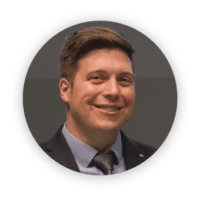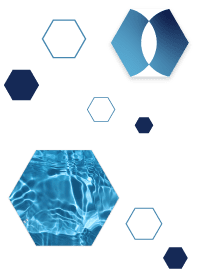ML2R became the Lamarr Institute – find all current information here!
Challenges and Open Research Questions
Recent advances in quantum computation raise the hope for finding algorithmic solutions to problems that were computationally out-of-reach for classical digital computers. The availability of real-world quantum processors moves quantum computing from its former purely theoretical corner closer to practically relevant problems but also closer to real-world restrictions and caveats. As a result, not all quantum algorithms that have been designed in the last decades are actually runnable on true quantum processors.
The reasons are threefold: Firstly, some quantum algorithms rely on building-blocks, such as large quantum random access memory, which cannot be implemented with current quantum hardware. Therefore, it is unlikely that these algorithms will be implemented in devices available in the near future. Secondly, the capabilities of state-of-the-art quantum devices are limited by the number of available qubits and the circuit depth. Thirdly, the available hardware exposes only noisy operations to the programmer: In addition to the inherent probabilistic nature of quantum computation, interaction between the quantum hardware itself and its surrounding environment induces further noise into any quantum computation.
Current Research Highlights and Activities
In the ML2R quantum Machine Learning research team, we work on quantum ML approaches which aim at circumventing the above-mentioned restrictions and issues. That is, our algorithms and solutions run on state-of-the-art real-world quantum processors, have a highly resource-efficient qubit and circuit-depth usage, and deliver practical results in the presence of noise. Currently, our research focusses on the following topics:
- Variational and analytical approaches for quantum circuit learning:
We proposed an algorithm to alleviate issues common to variational quantum computing. Our approach minimizes the number of gates in the circuit by discovering an architecture that corresponds to the posed problem via an evolutionary strategy. During an iterative process, we create a set of mutations and subsequently conduct a tournament to determine the best performing candidates as parents for the next generation. We tested our algorithm on a set of Hamiltonians, both as simulations and on real quantum hardware. On all posed problems the algorithm reliably finds circuits well suited for optimization with slightly higher accuracy for simulations than on real quantum devices. - Improving classical learning algorithms via quantum computing:
Recent advances in practical quantum computing have led to a variety of cloud-based quantum computing platforms that allow researchers to evaluate their algorithms on noisy intermediate-scale quantum (NISQ) devices. A common property of quantum computers is that they exhibit instances of true randomness as opposed to pseudo-randomness obtained from classical systems. Investigating the effects of such true quantum randomness in the context of Machine Learning is appealing, and recent results vaguely suggest that benefits can indeed be achieved from the use of quantum random numbers. To shed some more light on this topic, we empirically study the effects of hardware-biased quantum random numbers on the initialization of artificial neural network weights in numerical experiments. The quantum random numbers for our experiments are obtained from real quantum hardware. - Adiabatic quantum algorithms for combinatorial data science problems:
One sub-goal of this direction is to elucidate the close connection between Hopfield networks and adiabatic quantum computing. Focusing on their use in problem solving, we point out that the energy functions minimized by Hopfield networks are essentially identical to those minimized by adiabatic quantum computers. To practically illustrate this, we consider a simple textbook problem, namely the k-rooks problem, and discuss how to set it up for solution via a Hopfield network or adiabatic quantum computing. Moreover, we derive problem formulations of various clustering problems, showing that those problems are amenable for quantum supremacy. - Quantum-efficient algorithms for generative Machine Learning:
We conduct research on how quantum gate circuits can be converted into universal density estimators while keeping statistical guarantees of classical methods intact. Preliminary results suggest that there exists an injective mapping that guarantees a lossless transformation of a large class of probability distributions into the set of quantum gate circuits.
Recommended Reading and Selected Publications
From_ML2R
From_ML2R
From_ML2R
From_ML2R
B. Georgiev, L. Franken: Explorations in Quantum Neural Networks with Intermediate Measurements. ESANN, 2020
From_ML2R
From_ML2R
Recommended
From_ML2R
From_ML2R
C. Bauckhage, C. Ojeda, R. Sifa, S. Wrobel: Adiabatic Quantum Computing for Kernel k=2 Means Clustering. LWDA, 2018.
Recommended
From_ML2R
C. Bauckhage, E. Brito, K. Cvejoski, C. Ojeda, R. Sifa, S. Wrobel: Ising Models for Binary Clustering via Adiabatic Quantum Computing. EMMCVPR, 2017. More



